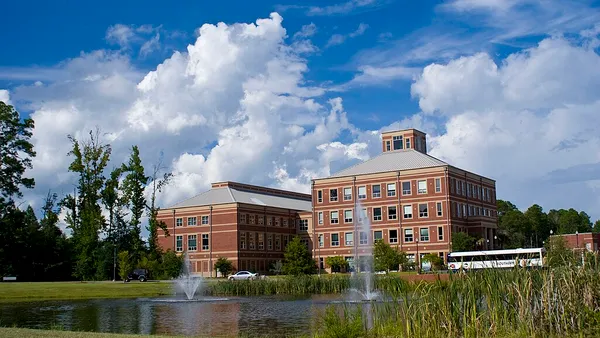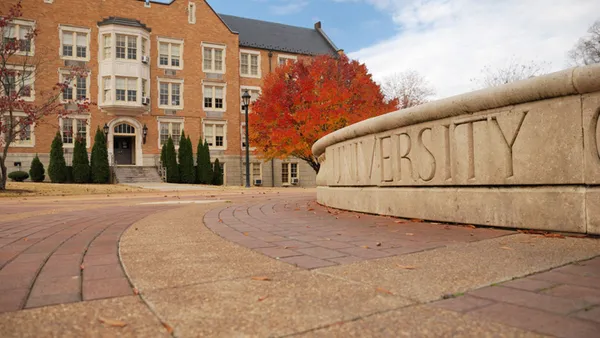Dive Brief:
-
The spring term spelled the end for at least three liberal arts colleges, which will soon either cease operating or accepting new students.
-
The colleges — Becker, Mills and Concordia New York — all said the coronavirus pandemic exacerbated existing financial woes.
-
Higher education experts predict more consolidation among all types of colleges and an uptick in closures.
Dive Insight:
In the pandemic's early days, a slew of pundits predicted the financial strain of moving instruction online and losing key auxiliary revenue would trigger a wave of college closures. Robert Zemsky, an education professor at the University of Pennsylvania, predicted as many as 200 schools could buckle under the pressure in a year.
That hasn't come to pass, with fewer than a dozen nonprofit college closures announced since the World Health Organization officially declared COVID-19 a pandemic, according to Higher Ed Dive's count. Still, experts say struggling schools must contend with a shrinking pool of traditional-age students and rising tuition discount rates.
"The fundamental business model for delivering education is broken," said Rick Beyer, a senior fellow and practice area lead for mergers and affiliations at the Association of Governing Boards of Universities and Colleges. "The consolidation era started a few years ago. It will continue. We will see more closures."
The three liberal arts colleges cited similar challenges in their closure announcements. Concordia College New York said its decision was "informed by immutable business realities." Nearby Iona College is purchasing the institution's campus and teaching out its students.
Becker College, in Massachusetts, said its attempts to cut costs weren't enough to combat falling enrollment and pandemic-related operational challenges. Clark University, a neighboring institution, announced it is establishing the Becker School of Design and Technology, which will continue "signature Becker programs" such as game design and esports management.
And in March, Mills College, a school for women and nonbinary students in California, said budget deficits and sliding enrollment led it to stop accepting new students and instead become an institute that will carry on its mission. Officials will hash out the structure of the institute over the next few months, they said in a statement.
They also noted that Mills is "pursuing promising discussions with other academic institutions to continue the College's mission."
A week later, the University of California, Berkeley, announced it would send 200 students to the Mills campus as part of a focused first-year experience. When asked if Berkeley is in talks with Mills about absorbing the college, a university spokesperson wrote in an email to Higher Ed Dive that officials look forward "to continued talks about how we can collaborate."
Robert Kelchen, a higher ed professor at Seton Hall University, in New Jersey, expects to see an uptick in college closures over the next couple of years, though not on the massive scale some observers have predicted.
"The pandemic has increased the number of colleges that are struggling to stay alive," Kelchen said. "Colleges are very slow to give up — they can operate on a shoestring budget for years, if not decades."
A new initiative aims to help colleges team up to address their challenges. The Transformational Partnerships Fund, established last month by the ECMC Foundation and SeaChange Capital Partners, will give grants of up to $100,000 to schools exploring mergers, partnerships or collaborations with other institutions. It expects to serve as many as 20 pairs of institutions in its first three years, according to the announcement.
The fund could help colleges look at their consolidation options, Beyer said. "One of the most important things for college and university boards to realize is that they need to be proactive and learn about what options are available to them," Beyer said.















